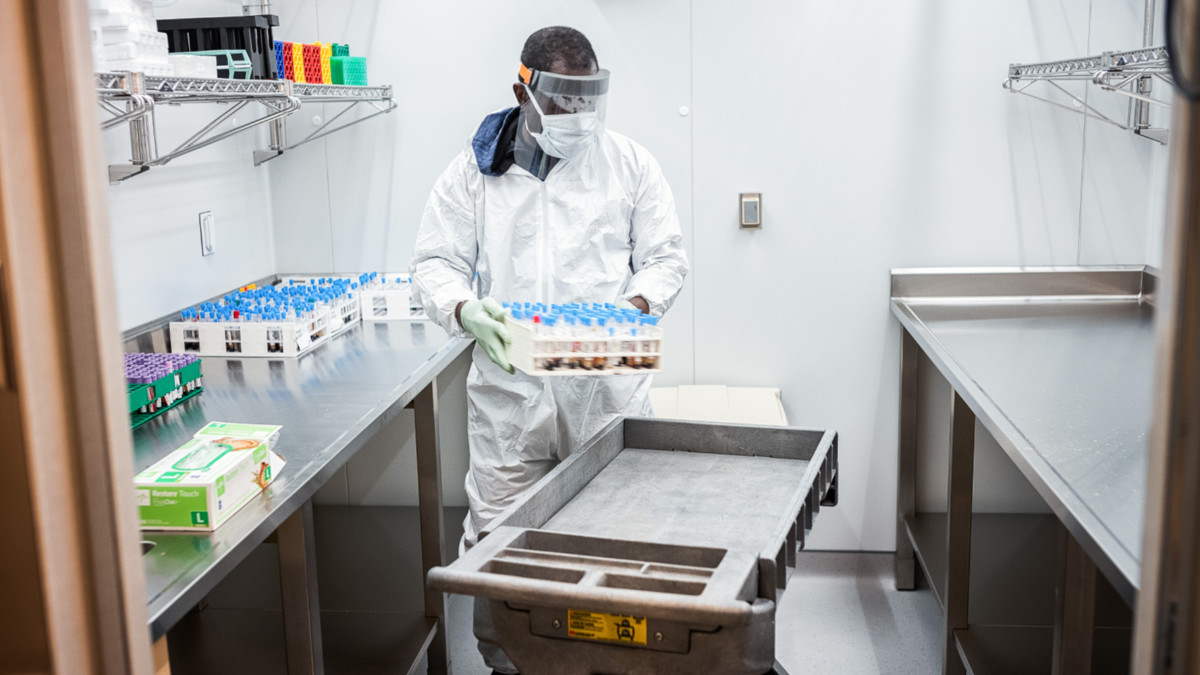Noxopharm wants to test its anti-prostate cancer drug against COVID-19

Can Noxopharm's anti-prostate cancer drug fight COVID-19? (Picture: Getty)
Noxopharm (ASX:NOX) is the latest biotech to announce it will test its drug against COVID-19.
So how exactly does an anti-prostate cancer drug work for COVID-19?
Noxopharm says it is all about one signalling pathway — the STING (Stimulator of Interferon Genes). This detects the presence of invading pathogenic organisms such as viruses and bacteria.
This pathway produces proteins known as cytokines which co-ordinate the immune and tissue repair (inflammatory) responses.
While this may seem like a good thing, sometimes this response goes too far and ends up damaging tissues in a phenomenon known as a cytokine storm.
This happens in cancer and in COVID-19. In the latter disease, the trigger is mounting tissue damage associated with poor oxygen levels from decreased lung function.
Today Noxopharm says it is seeking US Food and Drug Administration approval to do a clinical trial of its drug, Veyonda, on COVID-19 patients.
CEO Dr Graham Kelly says the trial will firstly look at the STING pathway and whether or not it is a major factor in COVID-19 deaths and secondly will investigate the potential of Veyonda to prevent cytokine storms.
“The need to prevent the phenomena of cytokine storm and septic shock in COVID-19 patients looks likely to remain for some considerable time and may even remain a long-term need should development of an effective vaccine prove challenging,” he said.
The FDA granted the company Investigational New Drug (IND) status back in February.
Many biotech companies plunged in the early days of COVID-19 but those that have pivoted into the area have witnessed some share price gains.
Noxopharm climbed over 20 per cent this morning and has nearly doubled from its March 23 low.
In other ASX biotech news today:
Portable medical imaging tech play EM Vision (ASX:EMV) shared preliminary results from a clinical trial. It has been testing its technology to see if it can identify ischemic strokes. This is something that only non-portable devices can do right now. Co-chairs of the Australian Stroke Alliance Professors Stephen Davis and Geoffrey Donnan said the results were clinically promising.
Avita Medical (ASX:AVH) announced plans to re-domicile to the US. It will remain listed on the ASX but it will now be secondary to its listing on the Nasdaq, and its US subsidiary will formally acquire the Australian company.
Avita plans to further boost its presence in the US market. The move will also allow it to cut the compliance costs associated with dual listing because of the lower regulatory burdens on foreign domiciled stocks.
Related Topics
UNLOCK INSIGHTS
Discover the untold stories of emerging ASX stocks.
Daily news and expert analysis, it's free to subscribe.
By proceeding, you confirm you understand that we handle personal information in accordance with our Privacy Policy.








